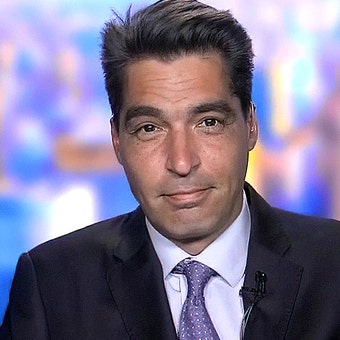Scenes show homelessness and drug addiction in Kensington, Philadelphia
Kensington is known for an open-air drug market, and high crime rates.
In Kensington, just north of Center City in Philly, an American tragedy is playing out as lives are crushed beneath the deadly weight of heroin and Fentanyl.
There you see the hollowed and haunting eyes of Americans forgotten by their government, who mill about, if they can stand, in a state that more resembles death than life, for blocks on end, simply misery.
There is perhaps no city on earth more associated with corruption than Philadelphia, where kickbacks are a hobby and graft is nearly perfected. Such has it always been.
But there’s always been a deal, or so it seemed. The Democrat party and their allies in the unions would wet their beaks, but in exchange, social order was maintained. That deal, as Kensington makes clear, is all but over.

Homeless people are seen on streets of the Kensington neighborhood as homelessness and drug addiction hit Philadelphia. ((Photo by Lokman Vural Elibol/Anadolu Agency via Getty Images))
As we arrived in the forsaken neighborhood a young man was sprawled on the ground, his shock of red hair and scraggly beard matted, and he did not appear to be breathing.
"Do we call 911?," I asked my cameraman. We agreed we should, after a brief discussion, and as we waited a small crowd gathered. One kind woman, also clearly on drugs herself, ran off to see if she could find some Narcan.
As we waited I met Andrew, a young man about to graduate high school, who is new to the neighborhood. He told me "It’s nice, but there’s so many addicts, and we don’t know what to do about it."
When I asked if the city could be doing more, he told me "Maybe, but a lot of these people don’t want help."
About 15 minutes later the ambulance pulled up. By that time the young man on the sidewalk had regained something resembling consciousness, his hand gently scratching the open sores on his neck.
Casting an accusing glance at Andrew the paramedic barked, "Did you call this in?"
"No," the young man protested.
"I did," I said, "He wasn’t moving, I couldn’t tell if he was breathing," almost forgetful that I was describing a human life.
The EMT guy sighed, he pointed down the street to the sea of prone bodies as if to say, "That’s everyone here."
It was hard to blame him.
SINALOA CARTEL EXPORTS FENTANYL ‘KITCHENS’ FROM MEXICO TO COLOMBIA AMID INTERNATIONAL CRACKDOWN

Homeless people are seen on streets of the Kensington neighborhood as homelessness and drug addiction hit Philadelphia. ((Photo by Tayfun Coskun/Anadolu Agency via Getty Images))
Making our way down the block towards the elevated train overpass you could see what he meant, a slow motion tragedy of people with loved ones somewhere who barely seemed awake or alive.
One woman very clearly did not want to be on camera, "Stop filming!," she yelled, "Do you want to get kicked in the balls?"
I’d have taken the threat more seriously had I thought she was capable of standing up. As it was, I simply replied, "I’d prefer not to."
Incredibly, beneath the rattle of the elevated train above, rushing commuters beyond this nightmare, a hodgepodge of small businesses eke out some kind of impossible beat existence.
Sneaker stores, a nail salon, some kind of dollar store with a sign in the window announcing "no credit cards," they all sat like the set of some horrible play in which the actors were slowly dying out front.
A small ways away, near McPherson Park I spoke to the son of the owner of J&R Grocery, he told me that yes, the diaspora of addicts mingling all about were an issue, but that, "I make sure they stay off the stoop, we run a safe place for our customers."

Rich and Peg shoot-up a mix of heroin and fentanyl on a street in Kensington on July 19, 2021 in Philadelphia, Pennsylvania. ((Photo by Spencer Platt/Getty Images))
To this son of a Kensington entrepreneur, and to so many who live in this place, it was all just so normal, just the wallpaper of their neighborhood, as if it is all just an inevitable reality.
We all know there are no easy answers, but in Kensington there are no answers at all, aside from two beat cops, which in fairness in more than I’ve seen in places like San Francisco and Los Angeles, where there was no semblance of city government.
CLICK HERE TO GET THE OPINION NEWSLETTER
It was as if this place is meant to be its own kind of prison or asylum, where the destitute addicts are simply left alone to wither, and to die.
Am I standing in the greatest nation on earth, one has to wonder amid the dark squalor and pain? It sure doesn’t feel like it.
CLICK HERE TO GET THE FOX NEWS APP
But in the big stone buildings just down the road, where the city’s politicians and elites play business as usual with the public’s money, this problem might as well not even exist, nor the lives this problem crushes.
It is what it is. And nobody, it seems, has the will, or the means to fix it.











































